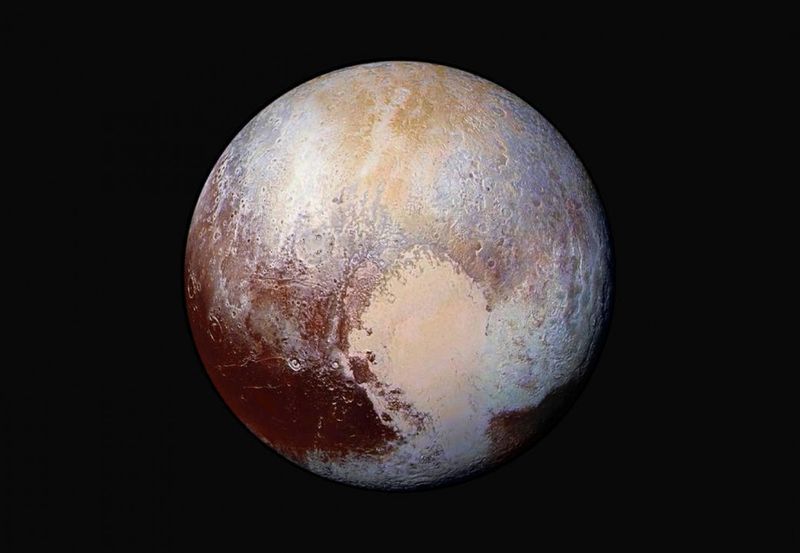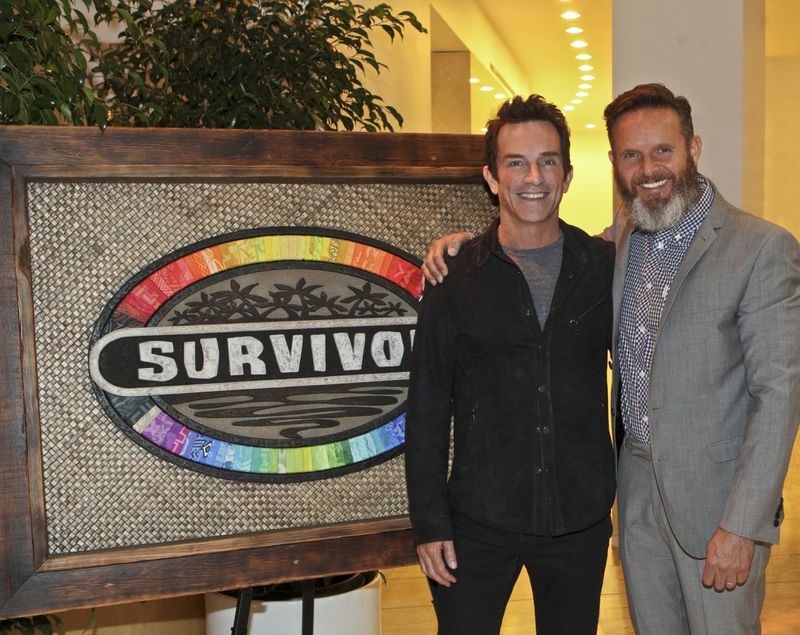Breeders' Cup Dirt Mile: Runhappy ends long layoff in Ack Ack | Daily Racing Form
Runhappy showed brilliance last year at 3, when he defeated his elders in the Breeders’ Cup Sprint.

Posted on October 13th, 2016
Breeders' Cup Classic: Older horses rule the roost
ARCADIA, Calif. – The dominance of older horses such as California Chrome in the Breeders’ Cup Classic division is so profound that there won’t be a single 3-year-old in the Awesome Again Stakes on Saturday at Santa Anita.

Posted on October 13th, 2016
Breeders' Cup Classic: Older horses rule the roost
ARCADIA, Calif. – The dominance of older horses such as California Chrome in the Breeders’ Cup Classic division is so profound that there won’t be a single 3-year-old in the Awesome Again Stakes on Saturday at Santa Anita.

Posted on October 13th, 2016
Breeders' Cup Classic: Race goes through California Chrome
With the Breeders’ Cup returning yet again to California this fall, the state’s favorite son is the parasol-shaped straw that stirs the frothy drink.

Posted on October 13th, 2016
Breeders' Cup Dirt Mile: Frosted remains on the fence
One of the central questions leading into this year’s Breeders’ Cup at Santa Anita is whether Frosted will go in the $1 million Dirt Mile on Nov. 4 or the $6 million Classic on Nov. 5. He has earned berths in both races, but a decision is pending, according to trainer Kiaran McLaughlin.

Posted on October 13th, 2016
The Washington Post: Facebook, Twitter and Instagram sent feeds that helped police track minorities in Ferguson and Baltimore, ACLU says
Facebook, Twitter and Instagram sent feeds that helped police track minorities in Ferguson and Baltimore, report says
A powerful surveillance program that police used for tracking racially charged protests in Baltimore and Ferguson, Mo., relied on special feeds of user data provided by Twitter, Facebook and Instagram, according to an ACLU report Tuesday.
The companies provided the data — often including the locations, photos and other information posted publicly by users — to Geofeedia, a Chicago-based company that says it analyzes social media posts to deliver real-time surveillance information to help 500 law enforcement agencies track and respond to crime. The social media companies cut off Geofeedia’s access to the streams of user data in recent weeks after the ACLU discovered them and alerted the companies about looming public exposure.
The popularity of Geofeedia and similar programs highlights how the rise of social media has given governments worldwide powerful new ways to monitor crime and civil unrest. Authorities often target such surveillance at minority groups or others seeking to publicly air political grievances, potentially chilling free speech, said the ACLU’s California affiliate, which unearthed Geofeedia’s relationship with social media companies through a public records request of dozens of law enforcement agencies.
“These platforms need to be doing more to protect the free speech rights of activists of color and stop facilitating their surveillance by police," said Nicole Ozer, technology and civil liberties policy director for the ACLU of California. “The ACLU shouldn’t have to tell Facebook or Twitter what their own developers are doing. The companies need to enact strong public policies and robust auditing procedures to ensure their platforms aren’t being used for discriminatory surveillance."
[A U.S. judge just disclosed how often law enforcement asked to secretly track electronic records]
In a statement, Geofeedia chief executive Phil Harris said the company “is committed to the principles of personal privacy, transparency and both the letter and the spirit of the law when it comes to individual rights."
He added that the firm works to ensure “end-users do not seek to inappropriately identify individuals based on race, ethnicity, religious, sexual orientation or political beliefs, among other factors. That said, we understand. . . that we must continue to work to build on these critical protections of civil rights."
Twitter tweeted in a statement, “Based on information in the @ACLU’s report, we are immediately suspending @Geofeedia’s commercial access to Twitter data."
Facebook, which owns Instagram, said in a statement that Geofeedia was accessing its data improperly: “This developer only had access to data that people chose to make public. . .. If a developer uses our [user data] in a way that has not been authorized, we will take swift action to stop them and we will end our relationship altogether if necessary."
Most users of Twitter, Facebook and Instagram know the social media services as platforms for sharing thoughts or images with friends. But companies such as Geofeedia and others collect and analyze social media data to help their own customers track emerging online trends. Specialized data streams from social media companies can provide access to faster, more exhaustive collections of posts than otherwise are publicly available.
Civil libertarians have grown increasingly concerned that the rising power of government surveillance technology is prompting a spike in the monitoring of African Americans and other minority groups through video surveillance, social media and the tracking of cellphone calls.
[In Baltimore, the police and a private company are running surveillance flights like never before]
“Police spying on social media has a disproportionate impact on black people," said Malkia Cyril, the executive director of the Center for Media Justice, an Oakland-based activist group. “There’s a movement afoot to ensure that black lives matter. That is being spied upon. That is being surveilled."
Before the social media companies began blocking access in recent weeks, Geofeedia was using specialized data streams for police surveillance. In one email discovered by the ACLU, a company employee boasted that it had a “confidential legally binding agreement with Facebook" for data. Another email said users of Geofeedia could “pull private information for Instagram and Twitters."
Neither claim could be independently verified.
Because social media posts increasingly provide location information from users’ smartphones, surveillance systems can map out areas of looming unrest or political activism. Geofeedia documents made public by the ACLU made references to tracking protests in Baltimore in 2015 after the death of a black man, Freddie Gray, while in police custody and also to protests in Ferguson, Mo., in 2014 after the police shooting of Michael Brown, an unarmed black man.
Facebook, Twitter, and Instagram make most of their money selling advertising, but all have side businesses selling outsiders access to their rich data streams about users. For example, through software known as an API, developers have been able to use Facebook to get access to a person’s friend list, birthday, profile picture, education history, relationship status, and political affiliation - if a person’s Facebook profile and location are public. \
Twitter also sells its own so-called data firehose, which includes the contents of tweets, and demographic information like gender and interests, the cellular network users and geolocation, by latitude and longitude coordinates, if the user tags it. Customers include financial firms that monitor business trends, retailers looking for product mentions, organizations like the Red Cross, which use the data to monitor crises, and law enforcement.
According to the documents obtained by the ACLU, Facebook provided Geofeedia with access to a data feed that enabled the surveillance startup to monitor topics trending from public posts about events, such as riots or protests. Twitter did not provide access to the full firehose, but offered Geofeedia a database to search public tweets. Instagram provided access to the Instagram API, which included photos posted publicly as well as location information if the users tagged their pictures.
News stories about Geofeedia, which was founded in 2011, first emerged last month, when the Daily Dot website reported that local police in Denver had spent $30,000 on online surveillance tools. Shortly after, the ACLU of California published public records showing that police departments across the state were rapidly acquiring social media monitoring software to monitor activists.
The ACLU said the social media companies had sought to close Geofeedia’s access to the special data feeds. Facebook and Instagram closed off Geofeedia’s access on Sept. 19. Twitter imposed contractual limits in an attempt to block Geofeedia from using posts for surveillance. Twitter also sent a cease and desist letter on Monday to Geofeedia, the ACLU said. On Tuesday, Twitter announced it would block the feed to Geofeedia altogether.
The civil liberties group said that social media companies should go farther in implementing public policies and other restrictions to keep their posts from being used for government surveillance. Without specialized data feeds, outside companies could still implement programs to “scrape" social media data as it becomes publicly available, but that approach would be less effective and also would violate the terms of service for some companies.
In addition to Twitter, Facebook and Instagram, the Geofeedia documents found by the ACLU show that the company also analyzes data from Vine and Periscope, as well as VK and Weibo, popular social media services in Russia and China, respectively. It is not clear whether any of those companies provide special data feeds to Geofeedia.
Play right from this page
The Switch newsletter
The day's top stories on the world of tech.

Posted on October 12th, 2016
The Washington Post: Across Europe, revulsion at Trump but little idea of what to do about him

Posted on October 12th, 2016
The Washington Post: Mark Burnett didn’t just make Donald Trump a TV star. He has a massive empire to protect.

Producer Mark Burnett arrives at the Emmy Awards in Los Angeles on Sept. 18. (Lucy Nicholson/Reuters)
British uber-producer Mark Burnett already changed our culture when he brought reality television to America. Now, he’s seen as the man who could potentially upend an election.
As the creator of “The Apprentice," he fueled Donald Trump’s rise to TV fame, when the GOP presidential nominee starred on the show for more than a decade. But after the Washington Post published a 2005 hot mic video on Friday of Trump crudely boasting about how he could grope women because he was a star, people started wondering: Can you imagine the footage that must be on old “Apprentice" tapes?
[Late-night TV hosts have a field day with Donald Trump-Billy Bush video]
The Associated Press already published a story about Trump degrading women on “The Apprentice" behind the scenes. Burnett stayed mum, which only led to a report that he was a Trump supporter threatening to sue anyone who leaked damaging material. On Monday night, Burnett finally released a joint statement with MGM Television, where he serves as president and which owns the rights to “The Apprentice." It read, in part:
“Despite reports to the contrary, Mark Burnett does not have the ability nor the right to release footage or other material from ‘The Apprentice.’ Various contractual and legal requirements also restrict MGM’s ability to release such material. The recent claims that Mark Burnett has threatened anyone with litigation if they were to leak such material are completely and unequivocally false."
This carefully-worded statement (which also made sure to mention Burnett “has consistently supported Democratic campaigns") didn’t do much to silence the skeptics. But legal complications aside, Burnett’s reluctance to hunt for footage that could potentially blow up the election isn’t surprising. Burnett is a hugely influential figure in Hollywood, from reality TV to the Christian entertainment market, and has a massive, award-winning empire to protect — why would he want to make any high-profile enemies?
Burnett, after all, is credited with the rise of reality television. Raised outside London, Burnett served in the British Army before arriving in Los Angeles in the early 1980s and working as a nanny and driver until he caught the Hollywood bug. In the book “Desperate Networks," journalist Bill Carter describes a turning point when Burnett was out jogging and he caught the attention of swooning women who thought he was an actor: “It gave him a glimpse of what fame meant in this town," Carter wrote.
In 1995, with zero TV background, Burnett sold MTV on the idea of “Eco-Challenge," a visually impressive TV competition show that features people racing across the desert. But it was a meeting with CBS that would change his life five years later: The network agreed to buy his crazy-sounding show called “Survivor," where contestants are stranded on an island and vote each other off. The show became a phenomenon and led to the explosion of this new thing called “reality TV" in the United States.
[‘Survivor’ changed television forever and it still endures. What’s the secret?]
From there, Burnett went on to produce dozens more shows around the world, including Trump’s “The Apprentice," now called “The New Celebrity Apprentice" (in its 16th season) and scheduled for a January debut with host Arnold Schwarzenegger. Some of Burnett’s biggest hits include ABC’s long-running “Shark Tank" and NBC’s smash “The Voice," currently the only surviving reality singing competition.
Burnett credits “The Voice’s" good vibes for its success — it doesn’t mock bad singers. “You don’t need to be mean to create drama," Burnett told the Washington Post in an interview last year. “There’s a lot of negative stuff out there. And it’s great to not be contributing to that."
Burnett and his wife, “Touched by Angel" star Roma Downey, are also a force in the religious entertainment world; they were recently named in the Newsmax list of “Top 100 Christian Leaders in America" and were the speakers at last year’s National Prayer Breakfast in Washington. With their production company, the couple created the 2013 History Channel miniseries “The Bible," which stunned many in Hollywood when 13 million viewers tuned into watch, making it among the top cable shows of the year. NBC picked it up for a sequel, “A.D.: The Bible Continues," which earned an average of 6.5 million viewers a week in 2015.
[History’s ‘The Bible’ was a huge cable hit. Now there’s a sequel on broadcast.]
Burnett and Downey also branched out into the feature film world in 2014 with “Son of God," an adaptation of “The Bible" miniseries focused on the story of Jesus; it made $67 million at the box office. The couple had less luck in August with a remake of the 1959 classic “Ben Hur." Despite heavily marketing to Christian viewers, according to Variety, the film only made $26 million of its $100 million budget, marking one of the worst movie flops of the summer.
Regardless, Burnett’s TV productions are still a machine. In late December, Burnett signed on as the president of the MGM Television and Digital Group (he first joined with the movie studio for “Ben Hur"), and the company bought out Burnett and Downey’s production company, which is how it now owns “The Apprentice" footage. The Hollywood Reporter wrote that as part of the deal, Burnett will help start a digital channel “aimed at churchgoing Americans."
As of now, though, it’s possible most people still know him as the guy who put Trump on millions of TV screens. At the Emmy Awards (where Burnett won for “The Voice" for best reality competition show), host Jimmy Kimmel skewered him for this very point.
“Many have asked who is to blame for Donald Trump, the Donald Trump phenomenon? And I’ll tell you who, because he’s sitting right there," Kimmel said, as Burnett laughed in the crowd. “Thanks to Mark Burnett, we don’t have to watch reality shows any more, because we’re living in one. Thank you, Mark. Thank you for coming all the way from England to tear us all apart with your intricate plot."
Read more:
How the ‘Today’ show handled Billy Bush’s suspension on air Monday
NBC has suspended Billy Bush. Will he be back?
After failing to seduce Nancy O’Dell, Trump reportedly tried to have her fired

Posted on October 12th, 2016
The Washington Post: Pluto gets a buddy: A new dwarf planet is discovered in our solar system
Pluto gets a buddy: A new dwarf planet is discovered in our solar system

An exaggerated color photo shows the varied terrain of Pluto, the most well-known dwarf planet. (NASA/JHUAPL/SwRI)
Out beyond Neptune, past Pluto, through the chaos of the Kuiper belt to a point some 8.5 billion miles from the sun, a new dwarf planet has just joined our solar system.
The Iowa-sized object, which is about half as big as Pluto and twice as distant, was described Tuesday in the International Astronomical Union's Minor Planet Electronic Circulator. It joins a growing list of dwarf planets known to populate the solar system: Ceres, Haumea, Makemake, Eris and — most famous of all — Pluto. It's suspected there could be at least 100 more.
The “trans-Neptunian object," known for now as 2014 UZ224, was discovered by University of Michigan astrophysicist David Gerdes with the help of a team of undergraduate researchers.
Gerdes is part of an international team of scientists working on the Dark Energy Survey — an effort to map the universe and elucidate some of its mysteries, particularly, why the expansion of the universe is accelerating. To do a dark energy survey, you need a dark energy camera, so the DES built a wide-angle camera in Cerro Tololo, Chile, that's capable of snapping images of the whole sky.
A few years ago Gerdes was supervising some undergraduate researchers he wanted to give them a challenge. He handed them one of the camera's maps of the entire galaxy and asked whether they could pinpoint which objects were in our own solar system.
['Have you SEEN Pluto?' - New Horizons scientist still rallying for planetary status]
The secret was to identify the ones that moved. Viewed against the vast backdrop of the Milky Way, close-by planets and other bodies appear to move more quickly in relation to everything else. Working with Gerdes, the students helped develop software that could pick out those subtly moving objects. They identified about a half dozen new bodies in those first few months.
This July, Gerdes was using that same software when he came across UZ224.
It took some careful tracking to confirm the discovery and map out 2014 UZ224's orbit. Its exact path is still unclear, because the planet takes more than 1,000 years to complete a single loop of the sun. But it's believed that 2014 UZ224 is the third most-distant object in the solar system.
Gerdes said it's possible some astronomers might dispute 2014 UZ224's dwarf planet designation. The distant body is pretty small, even for a dwarf planet.
But the term applies for now. Meanwhile, he and his colleagues are on to (literally) bigger things: looking for the mysterious Planet Nine, whose existence was speculated about in the Astronomical Journal earlier this year.
"The fact that we can find a very distant, very slow-moving object like this in our survey," he said, "is a promising sign that if there's more things like this out there, we have a good shot at finding them."
Correction: An earlier version of this post inaccurately described the role of Gerdes’ students in this research. They helped write the software that allowed him to identify 2014 UZ224 this summer.
Read more:
R.I.P., Rosetta: The orbiter just smashed into its comet in the name of science
Cosmic breakthrough: Physicists detect gravitational waves from violent black-hole merger
The Philae spacecraft was lost on a comet for two years. Now it's been found.

Play right from this page
Speaking of Science newsletter
The latest and greatest in science news.

Posted on October 12th, 2016
The Washington Post: Clinton campaign chairman says FBI probing ‘criminal hack’ of his email
WHITE PLAINS, N.Y. — Hillary Clinton's presidential campaign chairman, John Podesta, said Tuesday that the FBI is investigating a "criminal hack" of his private email account, which he blamed on Russia and suggested that the campaign of Republican presidential nominee Donald Trump could have known what was coming.
"I've been involved in politics for nearly five decades, and this definitely is the first campaign that I've been involved with in which I've had to tangle with Russian intelligence agencies, who seem to be doing everything they can on behalf of our opponent," Podesta told reporters aboard the Democratic nominee's plane as it returned here from campaign stops in Florida.
Podesta, a longtime Clinton family confidant and aide, said that he spoke with the FBI on Sunday and that he had been told Tuesday that the intrusion into his email is now part of a wider inquiry into potential Russian cyberattacks. He would not confirm the authenticity of emails released in recent days by the anti-secrecy website WikiLeaks that appear to be from his Gmail account.
[Clinton turns to Al Gore and climate change to excite millennials in Florida]
"Russian interference in this election and apparently on behalf of Trump is, I think, of the utmost concern to all Americans, whether you’re a Democrat or independent or Republican," Podesta said.
Podesta said that it would be "reasonable" to assume that the Trump campaign knew that WikiLeaks would release his email. He pointed to comments earlier this year by Roger Stone, a longtime Trump associate and former adviser to the campaign, that he had been in contact with Julian Assange, founder of WikiLeaks.
“Around the same time, Stone pointed his finger at me, and said that I could expect some treatment that would expose me," Podesta said, referring to comments on Twitter in August by Stone, who said it would soon be "Podesta's time in the barrel."
“So I think it’s a reasonable assumption to — or at least a reasonable conclusion — that Mr. Stone had advanced warning and the Trump campaign had advanced warning about what Assange was going to do," Podesta told reporters.
Some of the emails published so far are, if authentic, embarrassing glimpses into the inner workings of the Democratic presidential nominee's political network. They include sniping and drama among aides and Clinton's daughter, Chelsea Clinton, and a suggestion that Clinton ally Donna Brazile, who is now the interim head of the Democratic National Committee, had improperly tipped Clinton to a question she would get at a CNN forum. Brazile denied any impropriety Tuesday.
Trump seized on the leaked emails during a campaign appearance Tuesday night in Panama City, Fla., saying they are evidence that Clinton is "the vessel for a corrupt global establishment that is raiding our country and surrendering our sovereignty."
Podesta and Clinton communications director Jennifer Palmieri spoke to reporters after Clinton's campaign appearance in Miami on Tuesday with former vice president Al Gore.
Democratic presidential nominee Hillary Clinton is joined by NBA Hall of Famer Alonzo Mourning, right rear, and his wife, Tracy, second from right in rear, during a visit to the Overtown Youth Center in Miami on Tuesday. (Ricky Carioti/The Washington Post)
Podesta pointed to ties to Russia among Trump advisers, including Stone, and suggested there is a concerted effort to use Russian intelligence, surveillance or computer-hacking abilities to disrupt the U.S. election.
"Why would there be this active engagement by the Russians in the DNC and other Democratic organizations, [and] into my private email account? Well, I think you could start by looking at the positions that Mr. Trump has taken during the course of this campaign," Podesta said. "Ones that are more consistent with Russian foreign policy than with U.S. foreign policy."
He cited Trump's suggestion that he would not necessarily abide by the mutual defense clause of the North Atlantic Treaty Organization, which obligates military action on behalf of one member by the others. It is a foundation of the military alliance and probably the element that Russia most opposes.
Podesta also cited Trump's "excuse, and really lack of knowledge, about the Russian involvement and invasion of Ukraine, the illegal annexation of Crimea," and "his apparent love affair, bromance as I’ve called it, with Vladimir Putin," the president of Russia.
Podesta speculated that the timing of the first WikiLeaks release Friday was intended to detract attention from the emergence earlier in the day of a 2005 video, first reported by The Washington Post, that captured Trump making extremely lewd comments about women. Trump’s comments came as he was riding on a bus for a segment on the show “Access Hollywood."
“Within minutes of the 'Access Hollywood' tapes coming out, they decided that they were accountable for trying to take all the public’s attention off the things that Donald Trump said on that video," Podesta said.

Posted on October 12th, 2016






















